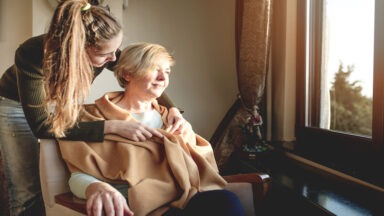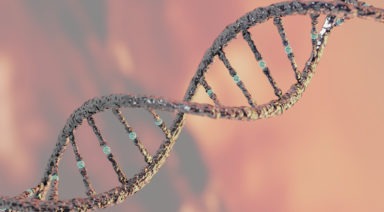10 Benefits to Learning Reiki: A Life-Changing Healing Practice

The Reiki system of healing uses universal life force energy as a healing modality. By transferring and manipulating the flow of one’s inherent energy to the body of another, this energy can be used to heal, either directly, or by putting the subject receiving the work into a state of deep relaxation and safety, that their body is able to heal itself. The healing touch of a high Reiki level practitioner is said to exude warmth, comfort, and even a tingling sensation within the body.
What is Reiki?
Reiki originated in Japan, although one of the two branches is called Western Reiki and is commonly practiced in the US. Reiki is a Japanese word translating to “miraculous sign,” or “mysterious atmosphere” coming from the root words “rei” meaning soul and “ki” meaning vital energy.
The biggest difference between Western Reiki and Japanese or Eastern Reiki is that the latter is more of a committed spiritual practice. Japanese Reiki also involves the use of meditations and an intensive study of the universal life force energy used for healing. Meditating on, and understanding the energy in and of itself is a major facet of the Eastern practice.
Both forms include the same basic features:
- Energy healing – no harm can be done with the universal life energy employed through Reiki.
- Intelligent energy – the energy is intuitive and knows where to go and what to do to help you. In fact, Japanese Reiki offers hand gestures and placements as a framework but encourages practitioners to move away from them eventually to allow for more intuitive movements based on how the energy wants to flow.
- Energy medicine – no other tools are needed besides the Reiki practitioner, who channels healing energy through their hands.
- Distant healing – practitioners place their hands softly on their body or just above their own body. They then visualize symbols, as well as the person they want to send healing energy to.
Reiki is also easy to learn, teachable in three reiki classes, and the knowledge of how to channel Reiki lasts a lifetime.
Benefits of Reiki Training
1. Attunement Process with the Universe
Reiki connects you to universal energy, thereby allowing you access to healing for yourself whenever you might need it. Plus, being plugged into the Universe means you can balance your body, mind, and spirit by spending some time each day devoted to self-healing.
2. Connection to Your Spirituality
Reiki brings you closer to your Higher Self, which is an essential part of anyone’s spirituality. The perks of being more in tune with your High Self include being more intuitive, helping you make better decisions and giving an overall feeling of wholeness as if a missing piece of your life’s puzzle has fallen into place.
3. Deep Relaxation
Happier people live longer. It’s a fact. Lowering the stress in your life is essential to keeping illnesses and ailments at bay from your body. Reiki is an excellent tool for keeping your heart and mind calm and connected to an inner peace that will be an asset in troubled times. You will gain a sense of real self-purpose and inner clarity that may have eluded you previously.
4. Health Benefits of the Body
We put natural wear and tear on our bodies on a daily basis, whether through exercise or simply walking around the office. Between that and the toxins in our environment, our bodies are in desperate need of healing. Self-healing on a physical level helps prevent sickness, whether it’s one you’ve already had or one that you may have, and aids our injuries in healing fully. There is a plethora of ailments that Reiki helps soothe, from mild back pain to even cancer, according to Reiki experts.
5. Direction for Your Life
Once again, you are more plugged into the Universe through the practice of Reiki. Therefore, you will be much closer to finding your true purpose and calling through learning Reiki, as you become reconnected with the Divine in your life. Let your mind be opened up through practicing Reiki, thus freeing up yourself and your spirit.
6. Giving Back
Ever felt like helping people, but you were totally unsure of how to go about this? Reiki extends to more than yourself in its healing. This is a gift that many would count as invaluable in their lives. Imagine helping people be free of injuries that have plagued them for years, or giving them a sense of inner peace! Giving back like this is truly its own reward.
7. Perspective
Reiki has the potential to turn your whole life around for the better if you self-Reiki every day and listen to your intuition. Life becomes a whole lot more clear, and you begin to understand what’s actually important in your life, and what is excess and unnecessary. Even things in your life like your relationships come into focus. Who is actually your friend? Who is just there for an easy ride? You’ll find out quickly when you start trying something “weird” like Reiki!
8. Emotional Healing
We all carry some kind of emotional trauma in our lives. No one’s life has been perfect. While we all accept that, we don’t all realize that we also carry the energy from these negative experiences. This trauma may be affecting us entirely, in our bodies, our hearts, and our spiritualities. Reiki can free us by helping us release the energy attached to the hardships of our past. Once this has been achieved, you are finally free to be yourself.
9. Self-Development
Reiki can change the way you deal with life and people in a way that is much healthier for you. It might not happen in a conscious manner, but it’ll quickly become apparent that when someone tries to take advantage of you. For example, you will push back, defend yourself, and demand more respect. Reiki helps you love yourself so that you can learn to love others and ask others to love you, as well.
10. “The Art of Inviting Happiness”
The founder of Reiki, Dr. Mikao Usui, described Reiki as the “art of inviting happiness.” Doesn’t that sound like something everyone could use in their lives? Often, people don’t know what happiness actually is, and seek material gains or the next promotion. But having a really, truly happy life goes far beyond that. Happiness comes from a profound understanding of the Universe and knowing your place there, which is exactly what Reiki sets out to do.
Is it Hard to Learn Reiki?
Just like anything new, learning a new modality or method of healing takes time and effort to study and learn the ins and outs of the philosophy. Luckily with Reiki, there are no special abilities needed as a prerequisite to learning the practice, the ability to use your energy for healing is latent in us all.
In general, it is relatively easy to learn the basics of Reiki, though continuing on a more involved path can require more effort and commitment, especially if one wants to learn traditional Japanese Reiki.
How Do You Learn Reiki Healing?
One way to learn Reiki healing is to go through the series of courses offered through the reiki.org website. But you can also learn Reiki through a qualified Reiki teacher or Reiki master who is certified in the practice.
Healing with Sound, Frequency, and Vibration

Many associate illness and disease with prescriptions and interventions such as surgery. Allopathic medicine and science have traveled a narrow path built on chemical substances and sharp instruments rather than energy.
But the ancients recognized sound, vibration, and frequency as powerful forces that influence life all the way down to the cellular level. The gifted Greek philosopher Pythagoras prescribed music as medicine, asserting that the musical intervals he discovered are clear expressions of sacred geometry. He stated that music is the phenomena of numbers in time, reflecting the structures of nature, and has the power to restore balance in an organism.
Sound Healing Research
According to a study published by the National Institute of Health, “Music effectively reduces anxiety for medical and surgical patients and often reduces surgical and chronic pain. [Also,] Providing music to caregivers may be a strategy to improve empathy, compassion, and care.” In other words, music is not only good for patients; it’s good for those who care for them.
A 2010 Finnish study observed that stroke patients who were given access to music as cognitive therapy had improved recovery. Other research has shown that patients suffering from the loss of speech due to brain injury or stroke regain it more quickly by learning to sing before trying to speak. The phenomenon of music facilitating healing in the brain after a stroke is called the “Kenny Rogers Effect.”
For those struggling with addiction and substance dependencies, learning to play an instrument may play an important role in recovery. A study at the University of Wisconsin showed that exposure to the right music, tones, and frequencies produces dopamine, which is in short supply for the nervous system during the withdrawal process.
“If you want to find the secrets of the universe, think in terms of energy, frequency, and vibration.” —Nikola Tesla
Singing bowl bathing is gaining popularity as a method to reduce stress and anxiety and to promote well-being. Laying down with eyes closed, participants listen while different bowls are struck and toned by a practitioner.
Studies show that this practice, called “sound bathing,” directly reduces anxiety and depression; both are related to increases in disease. According to one study, “Sixty-two women and men with an average age of 50 reported significantly less tension, anger, fatigue, and depressed mood after sound sessions. Tibetan singing bowl meditation may be a feasible low-cost low technology intervention for reducing feelings of tension, anxiety, and depression, and increasing spiritual well-being.”
A study published in the Southern Medical Journal (2005) demonstrated the beneficial effects of music in hospital settings. Researchers reported that “For children and adults, music effectively reduces anxiety and improves mood for medical and surgical patients, and for patients in intensive care units.” Researchers also noted that ambient music increased empathy in caregivers without interfering with the technical aspects of treatment.
Can Sound Fight Cancer?
In 1981, biologist Helene Grimal partnered with composer Fabien Maman to study the relationship of sound waves to living cells. Maman was also an acupuncturist and had previously discovered that by using tuning forks and colored light on acupuncture points he could achieve equal and even greater results than he could with needles.
For 18 months, Grimal and Maman worked with the effects of 30-40 decibel sounds on human cells. With a camera mounted on a microscope, the researchers observed uterine cancer cells exposed to different acoustic instruments (guitar, gong, xylophone) as well as the human voice for 20-minute sessions.
Using the nine-note Ionian Scale (C-D-E-F-G-A-B-C-D), Grimal and Maman observed that when exposed to sound, cancer cells lost structural integrity until they exploded at the 14-minute mark. Far more dramatic was the sound of a human voice — the cells were destroyed at the nine-minute mark.
Next, Maman and Grimal worked with two women with breast cancer. For one month, the women devoted three-and-a-half hours a day to “toning,” or singing the scale. One woman’s tumor became undetectable, meaning it simply disappeared. The other woman underwent surgery. Her surgeon reported that her tumor had shrunk dramatically and “dried up.” It was removed and the woman had a complete recovery and remission.
Maman said, “Cancer cells cannot maintain their structure when specific sound wave frequencies attack the cytoplasmic and nuclear membranes. When the vibratory rate increases, the cells cannot adapt or stabilize themselves and die by disintegrating and exploding.”




































